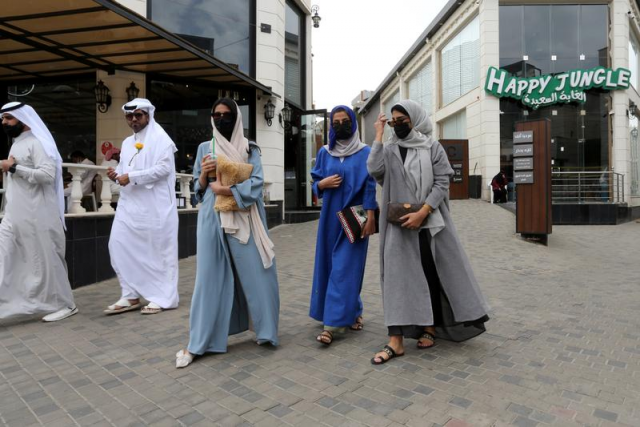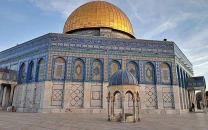Saudi Arabia seeks religious reset as clerical power wanes
Kingdom is becoming an economically driven country that is trying to appear more appealing to investors, says expert

Muezzins issuing high-decibel calls to prayer have long been part of Saudi identity, but a crackdown on mosque loudspeakers is among contentious reforms seeking to shake off the kingdom's austere image.
The role of religion faces the biggest reset in modern times as Crown Prince Mohammed bin Salman, spurred by the need to diversify the oil-reliant economy pursues a liberalisation drive.
The kingdom last month ordered that mosque loudspeakers limit their volume to one-third of their maximum capacity and not broadcast full sermons, citing concerns over noise pollution.
In a country home to tens of thousands of mosques, the move triggered an online backlash with the hashtag "We demand the return of mosque speakers" gaining traction.
It also sparked calls to ban loud music in restaurants, once taboo in the kingdom but now common amid liberalisation efforts, and to fill mosques in such large numbers that authorities are forced to permit loudspeakers for those gathering outside.
But authorities are unlikely to budge, as economic reforms for a post-oil era take precedence over religion, observers say.
"The country is re-establishing its foundations," Aziz Alghashian, a politics lecturer at the University of Essex, said.
"It's becoming an economically driven country that is investing substantial effort in trying to appear more appealing — or less intimidating — to investors and tourists."
Also read: Saudi women allowed to live alone without male guardian's permission
In the most significant change that began even before the rise of Prince Mohammed, Saudi Arabia neutered its once-feared religious police, who once chased people out of malls to go and pray and berated anyone seen mingling with the opposite sex.
In what was once unthinkable, some shops and restaurants now remain open during the five daily prayers.
As clerical power wanes, preachers are endorsing government decisions they once vehemently opposed — including allowing women to drive and the re-opening of cinemas.
The country is revising school textbooks to scrub well-known references denigrating non-Muslims as "swines" and "apes".
The practice of non-Muslim religions remains banned in the kingdom, but government adviser Ali Shihabi recently told US media outlet Insider that allowing a church was on "the to-do list of the leadership".






1725099588-0/BeFunky-(41)1725099588-0-208x130.webp)












COMMENTS
Comments are moderated and generally will be posted if they are on-topic and not abusive.
For more information, please see our Comments FAQ